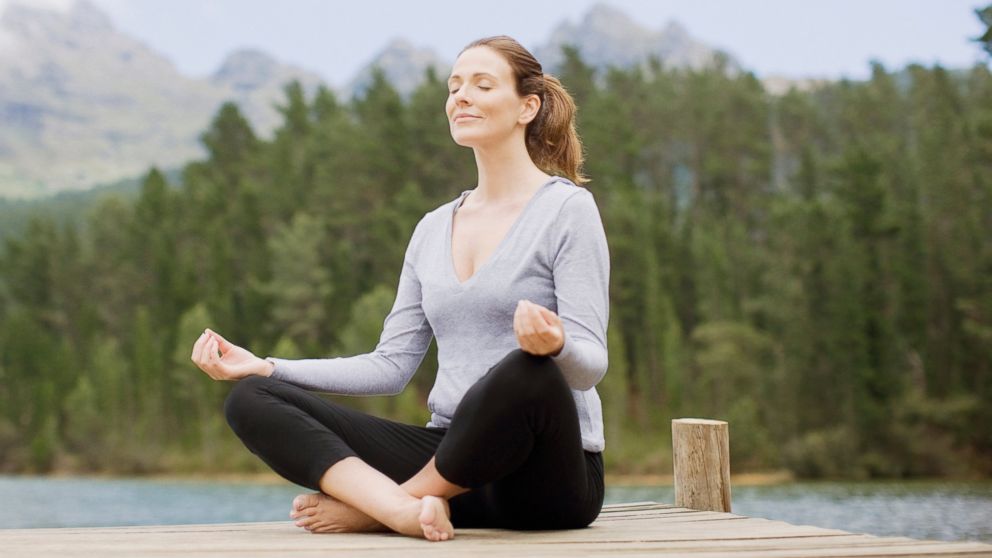Everything You Need to Know About Meditation
Get the facts about this workout for your brain.

March 23, 2014— -- "It'll change your life!" my trendier friends say. For the past year, they have been urging me to meditate. "Not my thing," I answer. I'm not good at Zen—I'm good at running late to an appointment as I fire off five texts. But after a particularly chaotic week in which I reeled from work crisis to kid crisis—feeling panicky, my mind whirring nonstop—I decided to try it out. It's not like meditation has any weird side effects or causes injuries. It doesn't require any gear (like my failed cycling venture) or an expensive trainer. So why not give it a go?
Although I couldn't care less about being on-trend, meditation is having a moment. Katy Perry reportedly does a 20-minute session every morning ("the only time my mind gets absolute rest"). Hugh Jackman, who actually sits in stillness with his two children, has said that the ritual changed his life. Actress Jordana Brewster meditates on set. It's become a go-to stress reducer for powerhouses Arianna Huffington and Oprah Winfrey, both of whom have offered classes to their employees.
Yoga Poses for Less Stress and Better Sleep
Meditation used to be viewed as a self-involved exercise done by, as devotee Russell Brand put it, "weird, old hippies." But that perception has vanished thanks to an avalanche of research on the ritual's benefits: It can reduce stress, lower blood pressure, slow Alzheimer's and curb tobacco cravings. One major review from Johns Hopkins University showed mindfulness meditation may be just as effective as antidepressants for treating anxiety symptoms.
I couldn't imagine finding the time to make meditation a daily thing—but, oddly enough, that's what happened.
OK, Deep Breath
Hindus have meditated for thousands of years. In fact, forms of the practice have been used in most of the world's major religions. It wasn't until Transcendental Meditation's popularity surged in the West in the '70s that scientists started paying attention to its array of health benefits. Known as TM, Transcendental Meditation involves closing your eyes and repeating a mantra to free the mind from conscious thought.
Another popular form of meditation, mindfulness, is also gaining steam among health experts. Doctors at prominent hospitals regularly recommend it for conditions like insomnia and irritable bowel syndrome. All you need to do is pay attention to your inner and outer experience in the present moment, without judgment. Like TM, it's shown to decrease stress within eight weeks. I decided to try it. But first, I consulted a few experts for guidance.
The Best Superfoods for More Energy
Ideally, you get mindful in a quiet spot—although it can be done while walking, sitting at your desk at work or even standing in a long line at the grocery store. It's more important to be away from engaging distractions, such as your computer, say experts, than it is for your space to be dead silent. "Close your eyes or not, however you feel most at ease," advises Sharon Salzberg, co-founder of the Insight Meditation Society in Barre, Mass. "Settle your attention on the feeling of the normal, natural breath, wherever it's most clear to you—the nostrils, chest or abdomen. See if you can feel one breath fully. Then the next breath." It's that simple.




